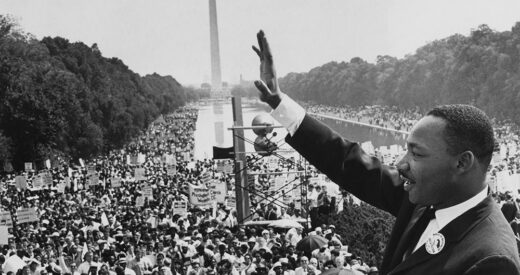Carl Cofield remembers when “One Night in Miami” was only a few pages of text, a knockout story, and a beautiful dream.
Then, in 2013, while working at the Classical Theatre of Harlem, Cofield met Kemp Powers and was blown away by the playwright’s latest work: a fictionalized account of a true meeting between four powerful Black men in 1964. Cofield jumped at the chance to direct the play’s premiere performance.
“There was a time when only a handful of people believed in this, really truly believed in it. When I flew to Los Angeles to make it, I was sleeping in Kemp Powers’ son’s bed with my feet hanging over,” he said.
“To see it go the full end of the spectrum, to now the world knows this story? It’s a beautiful thing.”
“One Night in Miami,” now an acclaimed film, takes place on Feb. 25, 1964, when 22-year-old Cassius Clay shocked the world by knocking out heavyweight champion Sonny Liston and taking his title. After the fight, Clay — who would soon become Muhammad Ali — went to the Hampton House motel to celebrate with three friends: activist Malcolm X, singer Sam Cooke, and football player Jim Brown.
In the story, the four friends talk about their collective mission and their duty to their communities with teasing banter and heated exchanges. While imagined, the dialogue is inspired by the real men — all outspoken advocates for Black power, civil rights, and religious freedom.
“Themes from that era still resonate now,” says Cofield.
A sixth-generation Floridian, Cofield grew up in Miami, yet he didn’t know about the real-life events that inspired the play and the movie. Key to telling these little-known stories — and putting a new spin on familiar stories — is to bring in more storytellers, he says, more artists with diverse backgrounds.
“Yes, Shakespeare is valid; Molière is valid. But now we have to expand the canon — expand the canon for more women, for more people of color. I come from the school of thought that that does not diminish Shakespeare, but in fact validates all of the stories,” he said.
“The crux of the thing is to make the table more inclusive. And by making it more inclusive, it’s not a table of scarcity. It’s actually a table of abundance.”
Cofield cites writers like Luis Alfaro and Will Power, who have reinterpreted classic Greek plays through a 21st-century multicultural lens, thereby reaching new audiences. Cofield hopes for a similar result from “One Night in Miami.” Those who see the movie might then want to learn more about these four great men and the era they lived in.
His greatest wish, however, is that the play and the movie will inspire meaningful conversations and “lead to dialogue, which we are sorely in need of now.”
“I am a big proponent that the arts, if done right, create conversation. They create conversations which bring people closer together, because we realize we have more in common than we do not.”
As you wrap up these final days of Black History Month 2021, we encourage you to curate those conversations in your own workplace as well. Download our Black History Month Programming Guide to get started.






